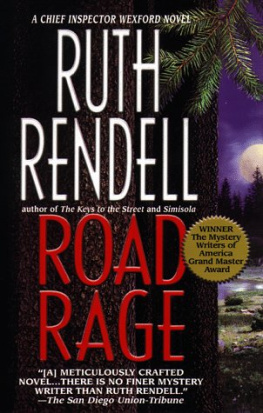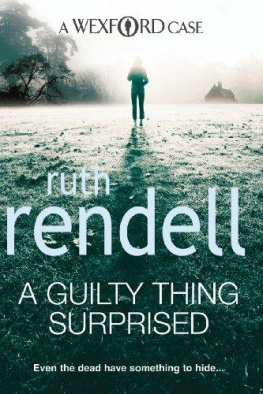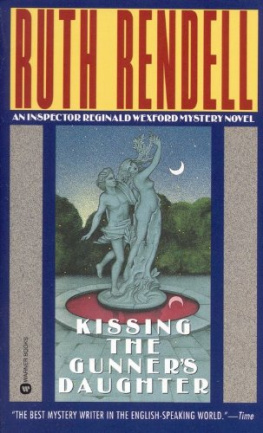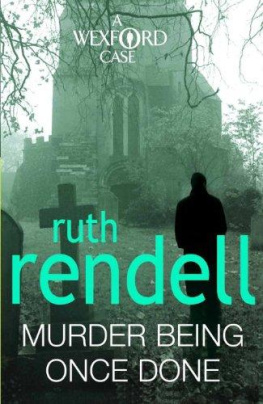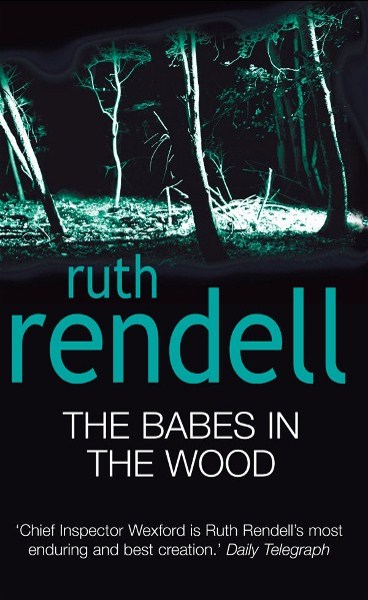
Beforehand
It was warm enough to be outdoors at ten and not feel a chill. The sky was all covered with stars and the moon had come up among them, a reddish harvest moon. Where they were was a wood with a clearing in it broad enough for a thousand people to dance on, but its springiness came from the dense green turf and its walls were a ring of tall forest trees, beech and ash and chest nut. Because the leaves hadnt yet begun to fall the house, which wasnt far away, couldnt be seen. Nor could its outbuildings and its gardens.
In the centre of the open space the people, a hundred or so, had formed a circle. Most of them had no idea the house was there. They had come in mini-buses and vans and some in their own cars, down a lane which debouched from another lane, which led from a rather narrow road. Nothing at the entrance to the lane indicated whether this was private land or not and nothing gave a due to the presence of the house. Some of the people wore the ordinary clothes favoured by the young and middle- aged alike and both sexes, jeans, a shirt, a sweater or jacket, but others were enveloped in robes, black or brown. They held hands and waited, expectant, perhaps excited.
A man dressed in white - open-necked white shirt, white trousers, white shoes - strode into the middle of the ring. When he reached the centre the people began to sing. It was a rousing tune which might have been a hymn or a chorus from an opera or musical. When it was done they clapped their hands rhythmically. The clapping ceased when the man in white spoke.
He called out in ringing tones, Are there any evil spirits tormenting you? Is there anyone here possessed by a bad spirit?
The silence was deep. No one stirred. A little breeze rose and flitted across the circle, lifting long hair and making draperies flutter. It fell again as someone appeared within the ring. None of those holding hands, the singers, those who had clapped, could have told where the newcomer came from. No observer, even from close to, could have told if this was a man or a woman and no living person could be seen immediately behind it, yet it stumbled a little as if given a push. It was draped from neck to feet in a black robe and its head covered by a black veil. A cry went up from the man who had asked about evil spirits.
Send your fire down, Lord, burn the evil spirits!
Burn, burn, burn! cried the ring.
The man in white and the figure in black met. From a distance they looked like a pair of lovers in disguise, masked and cloaked figures from the Venice Carnival perhaps. It was growing darker now, thin cloud passing across the face of the moon. The priest and supplicant, if that is what they were, were close enough to touch but no one could see if they touched or not. Seeing was less important than hearing and suddenly there was much to hear as the black figure let out a long low wail, a keening moan, but louder than a moan, and followed by a series of such cries. They sounded real, not staged, they sounded as if they came from a distressed and anguished heart, a soul in torment, and now they rose and fell, rose and fell.
The white figure kept quite still. The ring of people began to shiver and sway from side to side and soon they too were moaning while some beat at their bodies with their hands or, in several cases, with twigs they picked up from the ground. They swayed and wailed and the cloud passed so that the moon came out once more and blazed on this ritual, bathing it in white fire. Then the figure in black also began to move. Not slowly as the people did but with swift movements that became frenzied as it beat with its hands not on its own body but on the chest and arms of the man in white. Its moans became growls and you could hear its teeth chattering as it growled.
Apparently oblivious of the violent assault made on him, the man in white raised his arms above his head. In the voice of some ancient priest he called, Confess your sins and wickedness!
Then it came, a catalogue of errors, of commission and omission, some of it murmured, some of it uttered so that all could hear, the voice rising to a shout of desperation. The people were quiet, listening avidly. The confession went on but in less impassioned tones, dwindling until the creature in black was stammering, growing limp and cringing. Then there was silence broken only by a soft, almost sensual, sigh which rose from the crowd.
The priest spoke. He laid one hand on the black-cloaked shoulder and said in a ringing voice, Now come out of him! There was no absolution, only that assured command: Come out of him!
A cloud drifted across the moon, an event which evoked another sigh from the people, more perhaps a gasp of wonderment. A shudder passed through them as if a gust of wind had ruffled a field of corn.
See the evil spirits, my children! See them in the air flying across the moon! See Ashtaroth, the demon, she who dwells in the moon!
I see! I see! came the cry from the ring of people. We see the demon Ashtaroth!
The creature that was their home has confessed to great sins of the flesh but she, the demon, the embodiment of fleshly sin, has come out, and with her those lesser spirits. See them high above us in the air flow!
I see! I see!
And at last the supplicant in black spoke. It was in a broken voice, weak and sexless. I see, I see..
Thanks be to the Lord God of Hosts! cried the man in white. Thanks be to the Blessed Trinity and all angels!
Thanks be to the Lord!
Thanks be to the Lord and all angels, said the figure in black.
Within moments it was in black no longer. Two women broke through the ring and came into the centre, bearing armfuls of white clothing. Then they dressed the black figure, covering it from head to foot until there were two in white.
The one who had been black called aloud but in misery no longer, Thanks be to the Lord who has delivered his servant from sin and restored purity once more.
The words were scarcely uttered when the dance began. The two white figures were swallowed up in the crowd as someone made music, a tune coming from somewhere, a melody like a Scottish reel that at the same time, strangely, was a hymn. They danced and dapped. A woman had a tambourine and another a zither. The figure who had sinned and been redeemed and purified stood in the midst of them, laughing a merry laugh like someone enjoying himself at a childrens party. There was nothing to eat, nothing to smoke and nothing to drink, but they were drunk on fervour, on excitement, on the hysteria which comes when many are gathered together in a single belief, a single passion. And the one who was absolved continued to laugh peal after peal, merry and joyful as a child.
The dance lasted for half an hour but ceased when the music was withdrawn. It was a signal for departure and everyone, suddenly subdued once more, moved back to the lane where vehicles were parked on the grass verge.
The priest figure, who had come alone, waited until the people had gone before stripping off his robes and emerging as an ordinary man in jeans and combat jacket. The robes he put into the boot of his car. Then he walked down the drive to the house. It was large by present-day standards, early Victorian, with two shallow flights of stairs mounting to a front door inside a modestly pillared portico, and a balustrade bordering its slate roof, a house that was pleasing to look at if rather dull. There are hundreds, if not thousands, like it all over England. Plainly, no one was at home, but no one would be on a week night. He mounted the steps on the left-hand side, took an envelope from his pocket and slipped it through the letter box. He lived in straitened circumstances like most of his flock and wanted to save the cost of postage.
Next page


